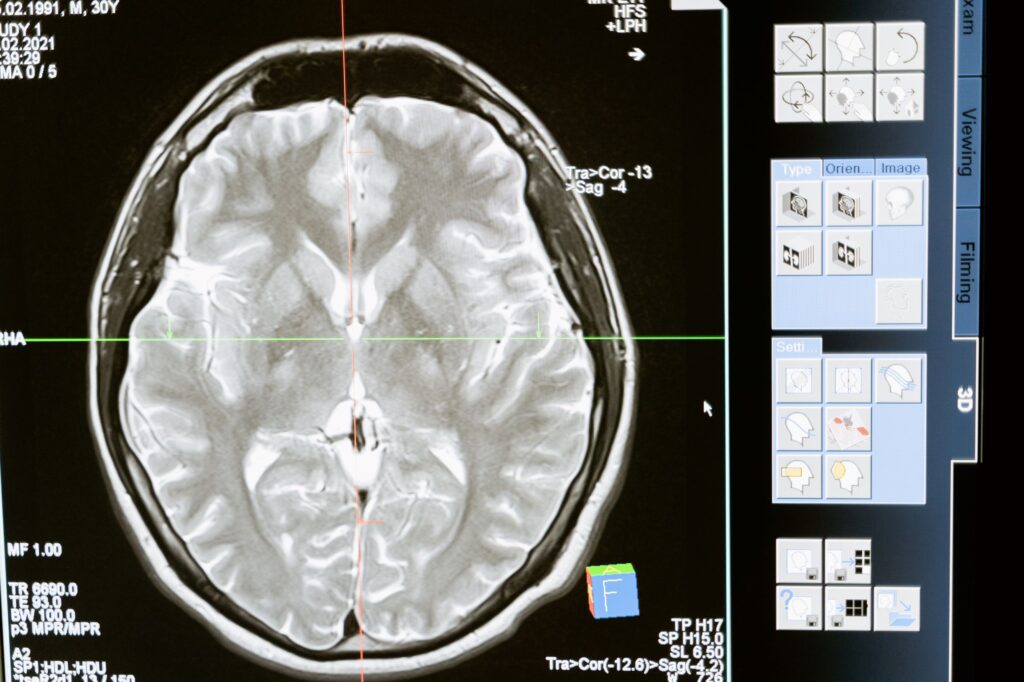While most people believe that an occasional drink won’t do them any harm, there are actually a number of ramifications for mental and physical health that can come out of any amount of alcohol consumption. A recent, extensive study of alcohol consumption has confirmed that there is no safe level of alcohol for brain health.
Effects on the Brain’s Gray Matter
A study conducted by researchers from the University of Oxford that involved over 25,000 individuals concluded that there is no safe dose of alcohol for the brain. Scans of the study participants revealed that their drinking, regardless of the amount they consumed, had a negative effect on their brain’s gray matter.
Lead author of the study, Anya Topiwala, a senior clinical researcher, stated that the “more people drank, the less the volume of their gray matter.” She explained that this gray matter involves regions in the brain that make up “important bits where information is processed.”
Negatively Associated with Brain Health
As a result of the study, the researchers stated that the consumption of alcohol was “linearly and negatively associated with indices of brain health across most of the brain.” Even moderate consumption was associated with adverse effects on the brain, although those who binge drink may be more susceptible to alcohol’s effects.
The researchers advised that the current “low risk” drinking guidelines should be revisited to take into account their study results. Adverse effects of alcohol on the brain were no different in study participants who consumed wine, beer, or liquor, indicating that the type of alcohol was not a factor in the negative impact on brain health.
One of the Largest Imaging Investigations
The University of Oxford study was one of the largest imaging investigations into the alcohol’s impact on brain health conducted to date. Given the extremely large sample size of study participants, the researchers were given “great statistical power to detect associations across almost the whole cortex, subcortical structures and cerebellum that have previously been uncharacterized, as well as extensively explore interactions with clinical and drinking behaviours.”
Their study involved the use of state-of-the-art neuroimaging and the results were stringently controlled. Multiple testing also increased their confidence in their findings. Medical diagnoses that were included as part of the study reflected real-world diagnoses made by healthcare clinicians. In addition, the study was the first to examine the relation of moderate drinking with functional connectivity in the brain.
Individuals at Higher Risk
Although all study participants who consumed alcohol in any amount were found to have impacted brain health, certain individuals were at higher risk. Those with characteristics such as obesity, high blood pressure, or binge drinking were more affected. Tony Rao, a visiting clinical fellow in Old Age Psychiatry at King’s College London, stated that “Even at levels of low-risk drinking, there is evidence that alcohol consumption plays a larger role in damage to the brain than previously thought. The (Oxford) study found that this role was greater than many other modifiable risk factors, such as smoking.”
Previous Study
This most recent research study confirms the findings of a previous study that also determined that no amount of wine, beer, or liquor is safe for overall health. In an analysis of 2016 global alcohol consumption and disease risk, published in The Lancet in 2018, researchers also found that even small amounts of alcohol affected the physical and mental health of the individuals who consumed it.
In the 2018 study, it was reported that alcohol was the leading risk factor for disease and premature death worldwide in women and men between 15 and 49. Alcohol accounted for almost one in 10 deaths, the report stated. Alcohol-related deaths included cardiovascular diseases and cancer, as well as infectious diseases such as tuberculosis, intentional injury related to alcohol consumption including self-harm and violence, and unintentional injuries resulting from alcohol consumption, including fires and drowning.
That study’s senior author Emmanueal Gakidou, a professor at the University of Washington’s Institute for Health Metrics and Evaluation, said, “The most surprising finding was that even small amounts of alcohol use contribute to health loss globally. We’re used to hearing that a drink or two a day is fine. But the evidence is the evidence.”
Alcoholism Treatment for Professionals in Philadelphia
At Providence Treatment, we help professionals overcome their addiction to alcohol and drugs. We understand that it can be overwhelming for you to admit that you need help for your addiction to alcohol. When you are ready to get outpatient addiction treatment in Philadelphia, we are ready to help you. Our expertise is in serving high-profile clients and licensed professionals like you.
Don’t let addiction to alcohol or drugs take over your life. You can overcome addiction at Providence Treatment. If you need help getting clean, then contact us at 484.469.9592, and you can begin your recovery as soon as possible.









